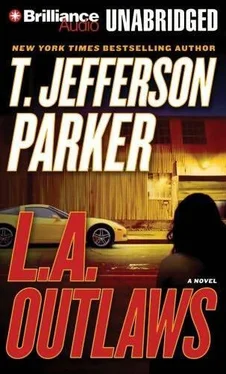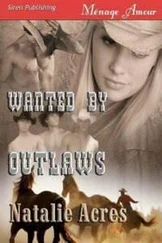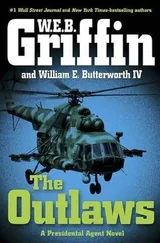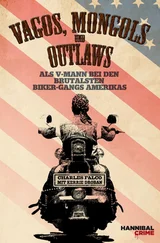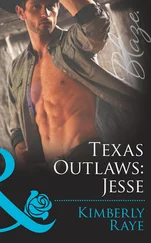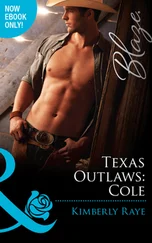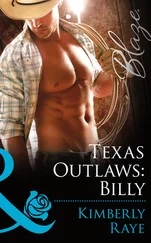He was a slender, quiet man, silver-haired and dark-eyed. He had been a farrier by trade, which is a person who shoes horses. He had a vertical scar on his forehead, curved as a hoof is curved. He had a mobile farrier service that was successful in the seventies and eighties. He drove all around Southern California shoeing horses. He told me later that he was also a bookie-a “front” as they call them in that business-which is the person who takes the bets. His mobile farrier business made it easy. He drove a junkyard crane part-time because the money was good and his brother owned the wrecking yard. When I was little he’d take me there, let me work the levers and push the buttons of the big crane, let me grab some junkers with that big magnet hoist and put them in the stack. Fun, but all the dead cars made me sad.
One day when I was fifteen and he was sixty-two he took me out for a “driving lesson” in my mother’s 1974 Alfa Romeo Spider. Jack loved cars. I had my learner’s permit, so I could drive with an adult in the car, and we raced all around Bakersfield in the little red roadster and I can’t explain what a joy it was to drive that thing. It was the last year the Spiders had the cool bumpers, and the last year before catalytic converters were required, so it put out 129 very adequate horses. And the four-speed had a short, sweet throw, with a lively clutch. That car stuck to the road like a tick. The air conditioner didn’t work. The door handles kept falling off. Radio? Forget it. Nothing on it really worked, but Jack just sat back and let me blast around, the top down and the wind blowing back his long silver hair. Of course I wasn’t exactly learning to drive because by then I’d been taking my mother’s and several other cars for joyrides for months. I was good. Thought I was.
When we came back I pulled the Alfa into the garage and shut off the engine.
Jack turned to me and put his hand on my knee.
“You are a special child,” he said.
“Thank you, Jack,” I said. “You always made me feel that way.”
He handed me a key with a tag attached. On the tag was an address and a number.
“This is yours,” he said. “My great-great-great-great-grandfather was Joaquin Murrieta. You will come to understand.”
“I wrote a report on him.”
“One night while you slept I told you his story. You were very young but I think you heard me.”
“I remember every part of it, Jack. The wind was blowing that night.”
“It seemed like the right time for an outlaw story.”
It took me a week to get out to that address, what with school and hapkido and my jobs at KFC and Taco Bell. Bradley’s father-to-be drove because he was three years older than me. I was two months pregnant with Bradley. Funny how that first walk across the floor in the morning would leave me queasy back then but the eighty-mile-an-hour Alfa jolt left me wanting more.
The address was a storage facility down in the south part of Bakersfield. I made Bradley’s cute fool of a father wait in the car. The key fit a well-oiled Schlage and got me into unit number 227.
There were two large cardboard boxes, big enough for a microwave or a small TV. They were taped shut. I picked the one on the left, slit the tape with my knife-a beautiful four-inch, walnut-handled Buck I’d shoplifted from Oshman’s Sporting Goods when they refused to hire me one summer. I still carry it in my satchel.
The first box was filled with papers, books, yellowed news clippings, flyers for exhibitions of the head of my great-great-great-great-great-great-grandfather, the outlaw Joaquin Murrieta. There was a leather duster with bullet holes in it, worn boots folded over and stiff with age, a lariat, an Indian arrow. His journal was at the bottom.
In the other box was his head in a jar of yellow liquid. A bit of a shock, even to a knocked-up fifteen-year-old with no discernible sense. I looked at all that hair lilting around near the bottom and the face as dead as a face can get, and I felt that I was a part of this man and he was a part of me.
I didn’t go back there for thirteen years. I took over the rent payments when Jack died.
I moved it all out to Valley Center a year and a half ago. It’s not hard to hide two boxes. The property is big and truly, people don’t see what they don’t want to see.
The Vietnamese are dancing to “The Tennessee Waltz.” I turn and look at the nearest mirrored wall and I see a blonde looking back at me. She looks confident. I take the elevator up to my fourth-floor suite.
I keep thinking of the surfer dude I almost blew away. I can feel the dark cloud that Joaquin wrote about and I wonder if it’s going to pass by or stay right over me, freeze my bones with me still on them.
I call my boys and talk an hour with each, not counting Kenny of course. Ernest is quiet and gentle as always, willing to let me avoid all truth.
I call Hood and listen to him say hello then I hang up and turn off the phone.
In the darkness Hood waited for Lupercio to come into the motel parking lot. The Mariposa was on Aviation near LAX, and when the jets roared over, Hood heard the window glass buzz and the lamp stand rattle on the table.
Sitting back from the window in room 6, Hood could see each parking place and the side of the motel office. Fog had broken the heat wave and now the night was heavy and damp. The Mariposa’s security and courtesy lights were yellow, casting the property in false colors.
There were twenty-six rooms. The parking places were nearly all taken. Around the perimeter was a cinder-block wall that had been heavily tagged and sandblasted and tagged again. A low concrete planter lit by a yellow ground light stood in the middle to divide the incoming and outgoing traffic, and in it grew three sagging queen palms blanched by the foggy illumination.
A pale minivan pulled in, circled around and found a place at the end of the row. So far tonight Hood had seen six new arrivals and eight departures. The Mariposa offered a park-and-ride deal at ninety-nine dollars according to the sign out front.
Suzanne had checked in at four P.M. then met him at a liquor store on Sepulveda to give him the room key and exchange cars. She had already talked to Betty Little Chief about parking Hood’s Camaro out of sight in her garage. Hood hoped she could make Valley Center by six-thirty, which would still be well before dark. He left a cigar box full of tapes of the Bakersfield sound on the passenger seat for her.
Hood drank coffee straight from a thermos and had a bag of snack food under his chair to keep up his alertness. Suzanne’s white Sentra-tinted a sour yellow by the motel lot lights-faced him from the parking space directly in front of his door.
The bait now sat before his superiors.
That afternoon he had told Wyte that Suzanne was checked into the Mariposa for one night. Wyte told him that he and his bride had stayed there when they first came to L.A. The planes kept them awake all night, or maybe it was each other. Then Wyte gave him a look that Hood couldn’t read and turned back to his monitor.
Later Hood told Marlon that Suzanne Jones was spending the night at her home in Valley Center. Marlon questioned her wisdom because Lupercio had already found her there once. Hood said he’d told her the same thing but Jones was stubborn. Marlon said if Lupercio showed up there tonight it would prove he was psychic and they’d have to get the psychic-crimes team on the case.
Hood drank more coffee and listened to the window vibrate and the lamp stand start up again. His department-issue Glock was holstered over his left shoulder and his own eight-shot Smith AirLite.22 was strapped to his right ankle. He had brought his folding chair from home, with armrests and a low seat that was surprisingly comfortable.
Читать дальше
